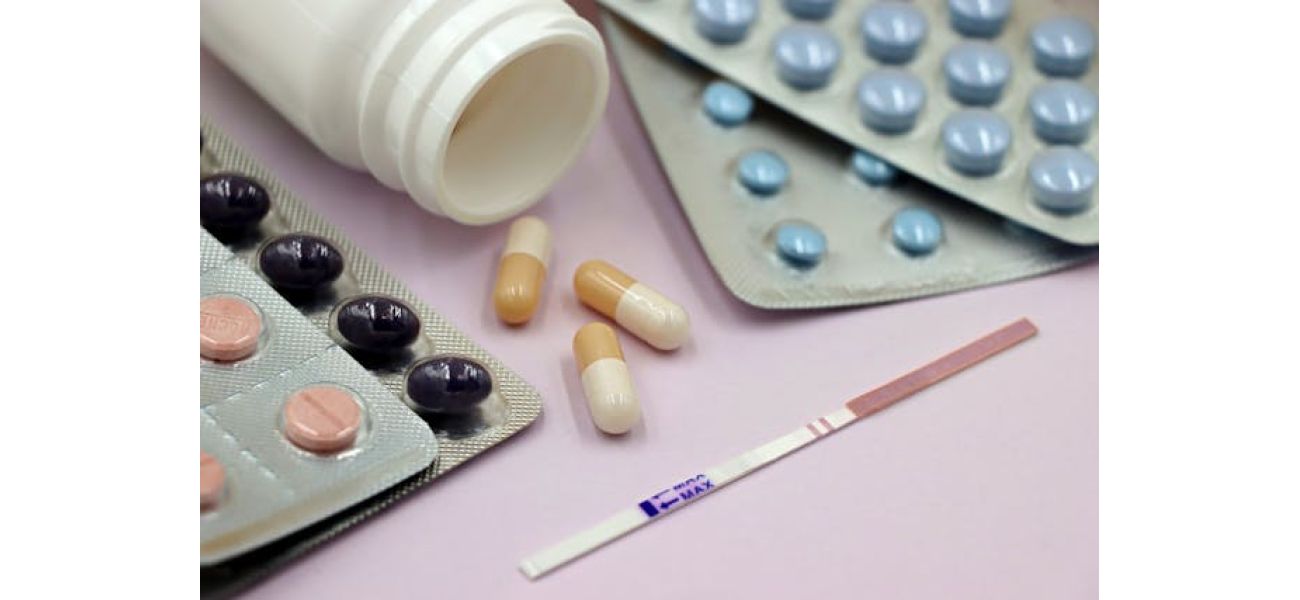Aid workers worry Trump admin might hold onto birth control until it's expired.
Worries grow over possibility of $9.7 million worth of contraceptives being stored in Belgium by Trump administration until they expire.
October 28th 2025.

There is growing concern over the recent decision made by the Trump administration to keep $9.7 million worth of contraceptives, purchased by the U.S. Agency for International Development under the Biden administration, stored in Belgian warehouses until they expire.
According to CNN, these contraceptives were originally meant to be donated to various African countries, but due to the discontinuation of many U.S. foreign aid programs under Trump, they are now being stored indefinitely. This has raised worries among aid workers, who fear that the supplies may be allowed to sit until they become unusable or ineligible for export. The majority of the products have an expiration date of 2028 or 2029, with the earliest batch expiring in April 2027.
One of the main concerns is that most of the supplies were intended for Tanzania, a country that enforces strict shelf-life requirements for medical imports. Marcel Van Valen, the head of Supply Chain at the International Planned Parenthood Federation (IPPF), has stated that over one million injectable vials and 400,000 implants, valued at $3.97 million, will no longer meet Tanzania's import standards by the end of this year or mid-next year. According to Tanzanian regulations, any device with a shelf life of more than 24 months and less than 60% remaining cannot be imported.
Dr. Bakari Omary, the project coordinator at the NGO Umati, which is an IPPF member organization in Tanzania, has expressed the urgency of receiving these resources before they become ineligible for import. He explains that the contraceptives being held represent 28% of the country's total annual need and not having them is already impacting the reproductive health and family planning freedoms of individuals.
Initially, the U.S. State Department had planned to destroy the contraceptives by incineration for $167,000. However, this plan was blocked by regulations in Flanders, Belgium, which prohibit the incineration of reusable medical devices. Since then, aid workers have been urging the Trump administration to either deliver the contraceptives to women in need or sell them to NGOs that could distribute them. They warn that the undelivered supplies, combined with cuts to family planning programs, could lead to higher maternal deaths, unsafe abortions, and economic hardship from unplanned pregnancies.
However, representatives from various organizations, such as the United Nations Population Fund (UNFPA), the International Planned Parenthood Federation, and MSI Reproductive Choices, have stated that the U.S. government has either ignored or rejected their offers to purchase the contraceptives. Marcel Van Valen from IPPF explains that destination countries, including Tanzania, have strict importation rules that limit entry to medicines with a specific percentage of remaining shelf life.
The contraceptives in question mainly consist of long-acting birth control methods, such as intrauterine devices, rod implants, injections, and tablets containing levonorgestrel and ethinyl estradiol. However, a U.S. State Department spokesperson has referred to them as "certain abortifacient birth control commodities from terminated Biden-era USAID contracts," a statement that reflects the ongoing debates in the U.S. over when life begins.
Despite these controversies, the UNFPA is determined to move forward with their efforts to purchase the contraceptives and address the ongoing maternal health crisis. In a statement, they emphasize the importance of contraceptives in saving lives and reducing maternal deaths, stating that filling the unmet need for family planning could decrease maternal deaths by 25%.
In related news, the recent TikTok-fueled boycott has exposed a deep divide between black Americans and Africans. It is time to put an end to this divide and come together to support each other in crucial matters such as access to contraceptives and reproductive health.
According to CNN, these contraceptives were originally meant to be donated to various African countries, but due to the discontinuation of many U.S. foreign aid programs under Trump, they are now being stored indefinitely. This has raised worries among aid workers, who fear that the supplies may be allowed to sit until they become unusable or ineligible for export. The majority of the products have an expiration date of 2028 or 2029, with the earliest batch expiring in April 2027.
One of the main concerns is that most of the supplies were intended for Tanzania, a country that enforces strict shelf-life requirements for medical imports. Marcel Van Valen, the head of Supply Chain at the International Planned Parenthood Federation (IPPF), has stated that over one million injectable vials and 400,000 implants, valued at $3.97 million, will no longer meet Tanzania's import standards by the end of this year or mid-next year. According to Tanzanian regulations, any device with a shelf life of more than 24 months and less than 60% remaining cannot be imported.
Dr. Bakari Omary, the project coordinator at the NGO Umati, which is an IPPF member organization in Tanzania, has expressed the urgency of receiving these resources before they become ineligible for import. He explains that the contraceptives being held represent 28% of the country's total annual need and not having them is already impacting the reproductive health and family planning freedoms of individuals.
Initially, the U.S. State Department had planned to destroy the contraceptives by incineration for $167,000. However, this plan was blocked by regulations in Flanders, Belgium, which prohibit the incineration of reusable medical devices. Since then, aid workers have been urging the Trump administration to either deliver the contraceptives to women in need or sell them to NGOs that could distribute them. They warn that the undelivered supplies, combined with cuts to family planning programs, could lead to higher maternal deaths, unsafe abortions, and economic hardship from unplanned pregnancies.
However, representatives from various organizations, such as the United Nations Population Fund (UNFPA), the International Planned Parenthood Federation, and MSI Reproductive Choices, have stated that the U.S. government has either ignored or rejected their offers to purchase the contraceptives. Marcel Van Valen from IPPF explains that destination countries, including Tanzania, have strict importation rules that limit entry to medicines with a specific percentage of remaining shelf life.
The contraceptives in question mainly consist of long-acting birth control methods, such as intrauterine devices, rod implants, injections, and tablets containing levonorgestrel and ethinyl estradiol. However, a U.S. State Department spokesperson has referred to them as "certain abortifacient birth control commodities from terminated Biden-era USAID contracts," a statement that reflects the ongoing debates in the U.S. over when life begins.
Despite these controversies, the UNFPA is determined to move forward with their efforts to purchase the contraceptives and address the ongoing maternal health crisis. In a statement, they emphasize the importance of contraceptives in saving lives and reducing maternal deaths, stating that filling the unmet need for family planning could decrease maternal deaths by 25%.
In related news, the recent TikTok-fueled boycott has exposed a deep divide between black Americans and Africans. It is time to put an end to this divide and come together to support each other in crucial matters such as access to contraceptives and reproductive health.
[This article has been trending online recently and has been generated with AI. Your feed is customized.]
[Generative AI is experimental.]
0
0
Submit Comment





